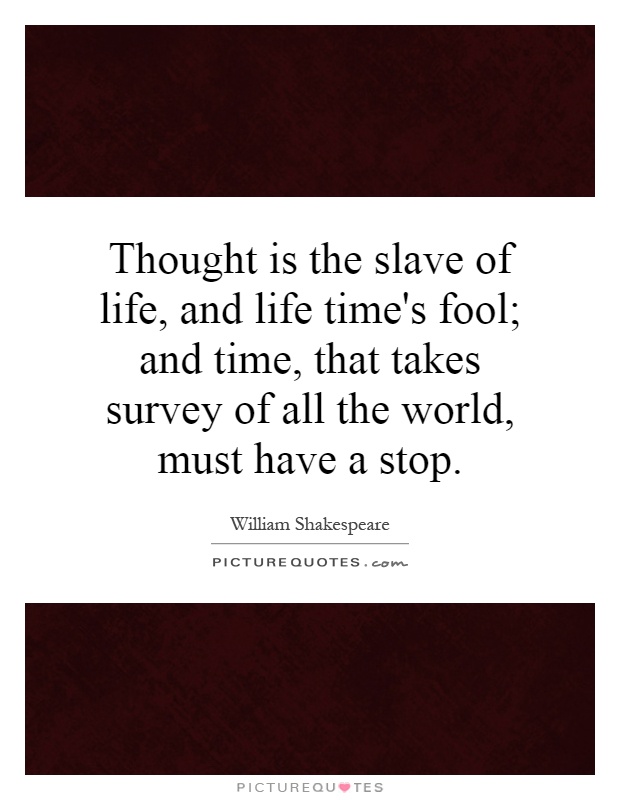Thought is the slave of life, and life time's fool; and time, that takes survey of all the world, must have a stop

Thought is the slave of life, and life time's fool; and time, that takes survey of all the world, must have a stop
In William Shakespeare's works, the theme of time and mortality is a recurring motif that is often explored through the lens of human thought and existence. The quote "Thought is the slave of life, and life time's fool; and time, that takes survey of all the world, must have a stop" encapsulates this theme perfectly, highlighting the transient nature of life and the inevitability of death.Shakespeare often delves into the complexities of human thought and the limitations of our understanding of the world around us. In many of his plays, characters grapple with existential questions and struggle to make sense of their place in the grand scheme of things. The quote suggests that our thoughts are ultimately subservient to the constraints of our mortal existence, and that time is the ultimate arbiter of our fate.
The idea that time "takes survey of all the world" speaks to the notion that time is a universal force that governs all aspects of life. In Shakespeare's works, time is often portrayed as a relentless and unforgiving force that marches on inexorably, regardless of human desires or intentions. Characters in his plays frequently lament the fleeting nature of time and the inevitability of death, underscoring the idea that time must eventually come to a stop for all living beings.
The concept of life being "time's fool" suggests that our existence is ultimately at the mercy of time, and that our attempts to understand or control our fate are ultimately futile. Shakespeare's characters often grapple with the idea of mortality and the limitations of human understanding, highlighting the fragility of life and the inevitability of death.
Overall, the quote "Thought is the slave of life, and life time's fool; and time, that takes survey of all the world, must have a stop" encapsulates the themes of mortality, time, and human existence that are prevalent throughout Shakespeare's works. It serves as a poignant reminder of the transient nature of life and the inevitability of death, urging us to contemplate our place in the grand tapestry of existence.












 Friendship Quotes
Friendship Quotes Love Quotes
Love Quotes Life Quotes
Life Quotes Funny Quotes
Funny Quotes Motivational Quotes
Motivational Quotes Inspirational Quotes
Inspirational Quotes